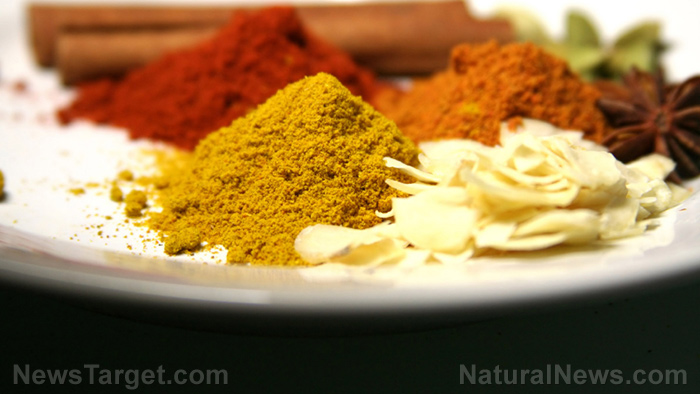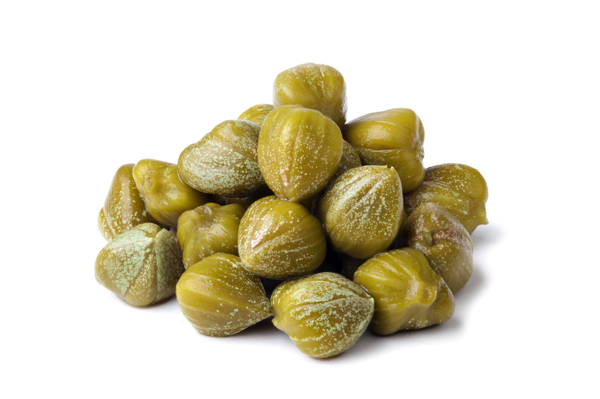Natural ways to reduce harmful fat around the heart: Expert tips for better heart health
01/18/2025 / By Zoey Sky

- Heart disease is the leading cause of death globally, with visceral fat around the heart playing a critical role in increasing cardiovascular risks.
- Key lifestyle changes for heart health include dietary changes, regular exercise and quitting smoking.
- Experts emphasize that reducing heart fat is about preventing disease before it starts.
- Consistent, small changes in diet, exercise and stress management can lead to significant improvements in cardiovascular health and overall well-being.
- Adopting heart-healthy habits not only decreases fat around the heart but also enhances quality of life and reduces the risk of cardiovascular events.
Heart disease remains the leading cause of death worldwide, but emerging research suggests that managing fat around the heart — a type of visceral fat — can play a critical role in reducing cardiovascular risks.
Unlike subcutaneous fat, which lies just beneath the skin, visceral fat is deeper, surrounding vital organs like the heart and liver. This type of fat is particularly dangerous because it can trigger inflammation, disrupt heart function and increase the risk of heart attack, stroke and other cardiovascular events.
The good news? Experts say that natural, lifestyle-based approaches can help reduce this harmful fat and improve overall heart health.
Why fat around the heart matters
Visceral fat, including fat around the heart, is more than just a storage depot for excess calories. It’s metabolically active, releasing inflammatory substances called cytokines that can damage blood vessels and heart tissue.
Over time, this inflammation can lead to plaque buildup in the arteries, a condition known as atherosclerosis, which is a major contributor to heart disease.
A study published in Cardiovascular Diagnosis & Therapy highlighted the dangers of visceral fat, noting that its location — especially around the heart — can predict future cardiovascular events.
Dr. Sanjay Rajagopalan, a cardiovascular researcher at Case Western Reserve University, explains that this fat can even alter heart muscle function, increasing the risk of heart failure and irregular heart rhythms.
3 Natural approaches to reducing heart fat
Here are three approaches that can help naturally reduce fat around the heart:
The health optimization approach
Dr. Sean O’Mara, a physician specializing in health optimization, emphasizes that reducing visceral fat — including fat around the heart — should be a primary focus for maintaining heart health. His program combines diet, fasting, exercise and environmental therapies to target fat at its source.
Diet
O’Mara recommends a carnivore-based diet that includes meat and fermented fruits, vegetables and dairy.
Fermentation eliminates sugars and inflammatory compounds while preserving nutrients and gut-friendly microbes. He also recommends avoiding processed foods.
Fasting
Prolonged fasting is a cornerstone of his approach. Studies suggest that extended fasts can reset metabolism and burn fat effectively.
Exercise
Instead of long-distance running, O’Mara advocates for anaerobic activities like sprinting or brisk walking, which promote fat loss without triggering the body’s fat-storage mechanisms.
Sauna and cold plunge
Alternating between heat and cold exposure can stimulate the production of protective proteins that improve overall health and reduce fat.
O’Mara reports that his patients often see an 80 percent reduction in heart fat within three to four months when following his program.
The natural heart doctor approach
Dr. Jack Wolfson, a board-certified cardiologist and functional medicine expert, takes a holistic approach to reducing visceral fat. His program focuses on diet, lifestyle and mental well-being.
Diet
Wolfson recommends the Paleo diet, which emphasizes whole, unprocessed foods like grass-fed meat, wild seafood, fruits, vegetables, nuts and seeds. Avoiding artificial ingredients and pesticides is key.
Lifestyle
Adequate sleep, regular sun exposure and exercise are non-negotiable. Wolfson also stresses the importance of reducing environmental toxins by using air and water purifiers.
Mental health
Happiness and stress management are crucial. Wolfson encourages natural strategies to combat anxiety and depression, as mental health issues are closely linked to cardiovascular risks.
Supplements
Instead of pharmaceuticals, Wolfson suggests evidence-based supplements like berberine and vitamin C to support heart health.
Wolfson’s approach aims to lower insulin levels, a hormone that promotes fat storage, while reducing inflammation and improving cardiovascular function.
The naturopathic approach
Caroline Mansfield, a registered naturopath, advocates for a natural, anti-inflammatory lifestyle to reduce heart fat.
Diet
Mansfield believes an anti-inflammatory diet rich in leafy greens, healthy fats and lean proteins, and devoid processed and sugary foods is the key to a healthy heart.
Exercise
Regular moderate- to high-intensity exercise can boost metabolism and fat burning.
Stress management
Prioritizing sleep and relaxation helps lower cortisol, a hormone that drives fat accumulation.
Detoxification
Using natural products like zeolite can help remove toxins that contribute to fat storage and inflammation.
Mansfield notes that these strategies not only reduce visceral fat but also improve overall metabolic and cardiovascular health.
Your guide to a heart-healthy lifestyle
While the approaches above vary, they all emphasize the importance of diet, exercise and stress management. Here are some additional tips to keep your heart in top shape:
Eat more fiber
Soluble fiber, found in oats, beans and fruits, can lower “bad” LDL (low-density lipoprotein) cholesterol.
Include omega-3s
Fatty fish like salmon and sardines are rich in omega-3 fatty acids, which protect against heart disease. (Related: A toast to heart health: How moderate wine consumption could support a healthy heart.)
Limit salt and saturated fats
Reducing salt intake and swapping saturated fats for healthier options like olive oil can lower blood pressure and cholesterol.
Quit smoking
Smoking is one of the most significant controllable risk factors for heart disease. Quitting can dramatically improve your heart health.
Stay active
Aim for at least 150 minutes of moderate exercise per week to improve cholesterol levels and overall cardiovascular health.
Hydrate
Drinking plenty of water supports liver function, which is essential for breaking down cholesterol.
Experts agree that reducing fat around the heart isn’t just about looking better, it’s about preventing disease before it starts. By adopting heart-healthy habits, you can lower your risk of cardiovascular events, improve your quality of life and set the stage for long-term well-being.
As Wolfson puts it, when losing weight with natural strategies, “fat everywhere — including around the heart — decreases.” He added that the secret lies in “keeping insulin low and inflammation in check.”
The bottom line? Small, consistent changes can lead to big improvements in heart health.
Whether it’s through diet, exercise or stress management, taking control of your lifestyle today can help you live a longer, healthier life tomorrow.
Watch this clip about beetroots and how they can support your heart health and overall wellness.
This video is from the All About Herbs channel on Brighteon.com.
More related stories:
Reclaim your health: How midlife exercise reverses years of inactivity.
Tarragon: Versatile ancient herb with science-backed health benefits.
Muscles and immunity: How building muscle boosts your immune system.
5 Remarkable ways GARLIC can support your health, according to science.
Sources include:
Submit a correction >>
Tagged Under:
alternative medicine, antiaging, cardiovascular health, exercise, exercises, fitness, food is medicine, health science, heart attack risk, heart attacks, heart disease, heart health, natural medicine, nutrition, physical activities, prevention, research, stroke, visceral fat, warm-ups
This article may contain statements that reflect the opinion of the author
RECENT NEWS & ARTICLES
ReverseHeartDisease.News is a fact-based public education website published by Reverse Heart Disease News Features, LLC.
All content copyright © 2018 by Reverse Heart Disease News Features, LLC.
Contact Us with Tips or Corrections
All trademarks, registered trademarks and servicemarks mentioned on this site are the property of their respective owners.


















